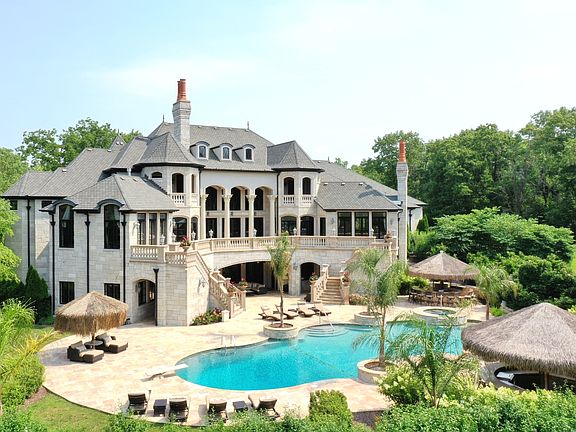Table of Content
He occupied a small farm house near Minusio , living from 25 April to 11 May in Sorengo. On 11 May, he moved to the town Montagnola and rented four small rooms in a castle-like building, the Casa Camuzzi. Here, he explored his writing projects further; he began to paint, an activity reflected in his next major story, "Klingsor's Last Summer", published in 1920. This new beginning in different surroundings brought him happiness, and Hesse later called his first year in Ticino "the fullest, most prolific, most industrious and most passionate time of my life". In 1922, Hesse's novella Siddhartha appeared, which showed the love for Indian culture and Buddhist philosophy that had already developed earlier in his life.

In 1924, Hesse married the singer Ruth Wenger, the daughter of the Swiss writer Lisa Wenger and aunt of Méret Oppenheim. In 1933, Bertolt Brecht and Thomas Mann made their travels into exile, each aided by Hesse. In this way, Hesse attempted to work against Hitler's suppression of art and literature that protested Nazi ideology. Hesse's third wife was Jewish, and he had publicly expressed his opposition to anti-Semitism long before then.
University Of Saint Mary Of The Lake/Mundelein Seminary Catholic Church (Mundelein)
In Gaienhofen, he wrote his second novel, Beneath the Wheel, which was published in 1906. His story "The Wolf", written in 1906–07, was "quite possibly" a foreshadowing of Steppenwolf. In 1881, when Hesse was four, the family moved to Basel, Switzerland, staying for six years and then returning to Calw. After successful attendance at the Latin School in Göppingen, Hesse entered the Evangelical Theological Seminary of Maulbronn Abbey in 1891. The pupils lived and studied at the abbey, one of Germany's most beautiful and well-preserved, attending 41 hours of classes a week.

In 1900, Hesse was exempted from compulsory military service due to an eye condition. This, along with nerve disorders and persistent headaches, affected him his entire life. On 17 October 1895, Hesse began working in the bookshop in Tübingen, which had a specialized collection in theology, philology, and law.
St. Bernard Catholic Church
In the late 1930s, German journals stopped publishing Hesse's work, and the Nazis eventually banned it. Having realised he could make a living as a writer, Hesse finally married Maria Bernoulli (of the famous family of mathematicians) in 1904, while her father, who disapproved of their relationship, was away for the weekend. The couple settled down in Gaienhofen on Lake Constance, and began a family, eventually having three sons.
By 1898, Hesse had a respectable income that enabled financial independence from his parents. During this time, he concentrated on the works of the German Romantics, including much of the work of Clemens Brentano, Joseph Freiherr von Eichendorff, Friedrich Hölderlin, and Novalis. In letters to his parents, he expressed a belief that "the morality of artists is replaced by aesthetics". Below, we will show you some data exposing the mass times at St Bernard’s Church, with different schedules, both mornings and evenings of the Catholic Church.
Between Lake Constance and India
His mother wrote poetry, and his father was known for his use of language in both his sermons and the writing of religious tracts. His first role model for becoming an artist was his half-brother, Theo, who rebelled against the family by entering a music conservatory in 1885. Hesse showed a precocious ability to rhyme, and by 1889–90 had decided that he wanted to be a writer. In this environment with rich stimuli for his pursuits, he further developed spiritually and artistically. At the same time, Basel offered the solitary Hesse many opportunities for withdrawal into a private life of artistic self-exploration, journeys and wanderings.
During this time, he was introduced to the home of Fräulein von Reutern, a friend of his family's. His relationships with his contemporaries were "problematic", in that most of them were now at university. After this, Hesse began a bookshop apprenticeship in Esslingen am Neckar, but quit after three days. Then, in the early summer of 1894, he began a 14-month mechanic apprenticeship at a clock tower factory in Calw.
Influence
The monotony of soldering and filing work made him turn himself toward more spiritual activities. In October 1895, he was ready to begin wholeheartedly a new apprenticeship with a bookseller in Tübingen. This experience from his youth, especially his time spent at the Seminary in Maulbronn, he returns to later in his novel Beneath the Wheel. During this time, there also was increased dissonance between him and Maria, and in 1911 Hesse left for a long trip to Sri Lanka and Indonesia. Following Hesse's return, the family moved to Bern , but the change of environment could not solve the marriage problems, as he himself confessed in his novel Rosshalde from 1914.
Founded by John Lion, the Magic Theatre has fulfilled that mission for many years, including the world premieres of many plays by Sam Shepard. In the 1950s, Hesse's popularity began to wane, while literature critics and intellectuals turned their attention to other subjects. In 1955, the sales of Hesse's books by his publisher Suhrkamp reached an all-time low. However, after Hesse's death in 1962, posthumously published writings, including letters and previously unknown pieces of prose, contributed to a new level of understanding and appreciation of his works.
His father, Hesse stated, "always seemed like a very polite, very foreign, lonely, little-understood guest". His father's tales from Estonia instilled a contrasting sense of religion in young Hermann. I understand that information I choose to enter into this website, including my name, phone number, and location may be stored, publicly available, and searchable on this website. I understand that I have the ability to change or remove this information at any time. Fill out the following form to request more information on becoming a sponsor of this listing. According to Hesse, he "survived the years of the Hitler regime and the Second World War through the eleven years of work that spent on ".

Following a letter to Kapff in 1895 entitled Nirvana, Hesse had ceased alluding to Buddhist references in his work. In 1904, however, Arthur Schopenhauer and his philosophical ideas started receiving attention again, and Hesse discovered theosophy. Although it was many years before the publication of Hesse's Siddhartha , this masterpiece was to be derived from these new influences.
Hesse's mother, Marie Gundert, was born at such a mission in South India in 1842. In describing her own childhood, she said, "A happy child I was not..." As was usual among missionaries at the time, she was left behind in Europe at the age of four when her parents returned to India. In his time, Hesse was a popular and influential author in the German-speaking world; worldwide fame only came later. Hesse's first great novel, Peter Camenzind, was received enthusiastically by young Germans desiring a different and more "natural" way of life in this time of great economic and technological progress in the country . Demian had a strong and enduring influence on the generation returning home from the First World War. He had to struggle through writing it, and he later would describe it as "a miscarriage".
After the end of each twelve-hour workday, Hesse pursued his own work, and he spent his long, idle Sundays with books rather than friends. Hesse studied theological writings and later Goethe, Lessing, Schiller, and Greek mythology. He also began reading Nietzsche in 1895, and that philosopher's ideas of "dual…impulses of passion and order" in humankind was a heavy influence on most of his novels. Hermann Hesse's grandfather Hermann Gundert, a doctor of philosophy and fluent in multiple languages, encouraged the boy to read widely, giving him access to his library, which was filled with the works of world literature. All this instilled a sense in Hermann Hesse that he was a citizen of the world.

No comments:
Post a Comment